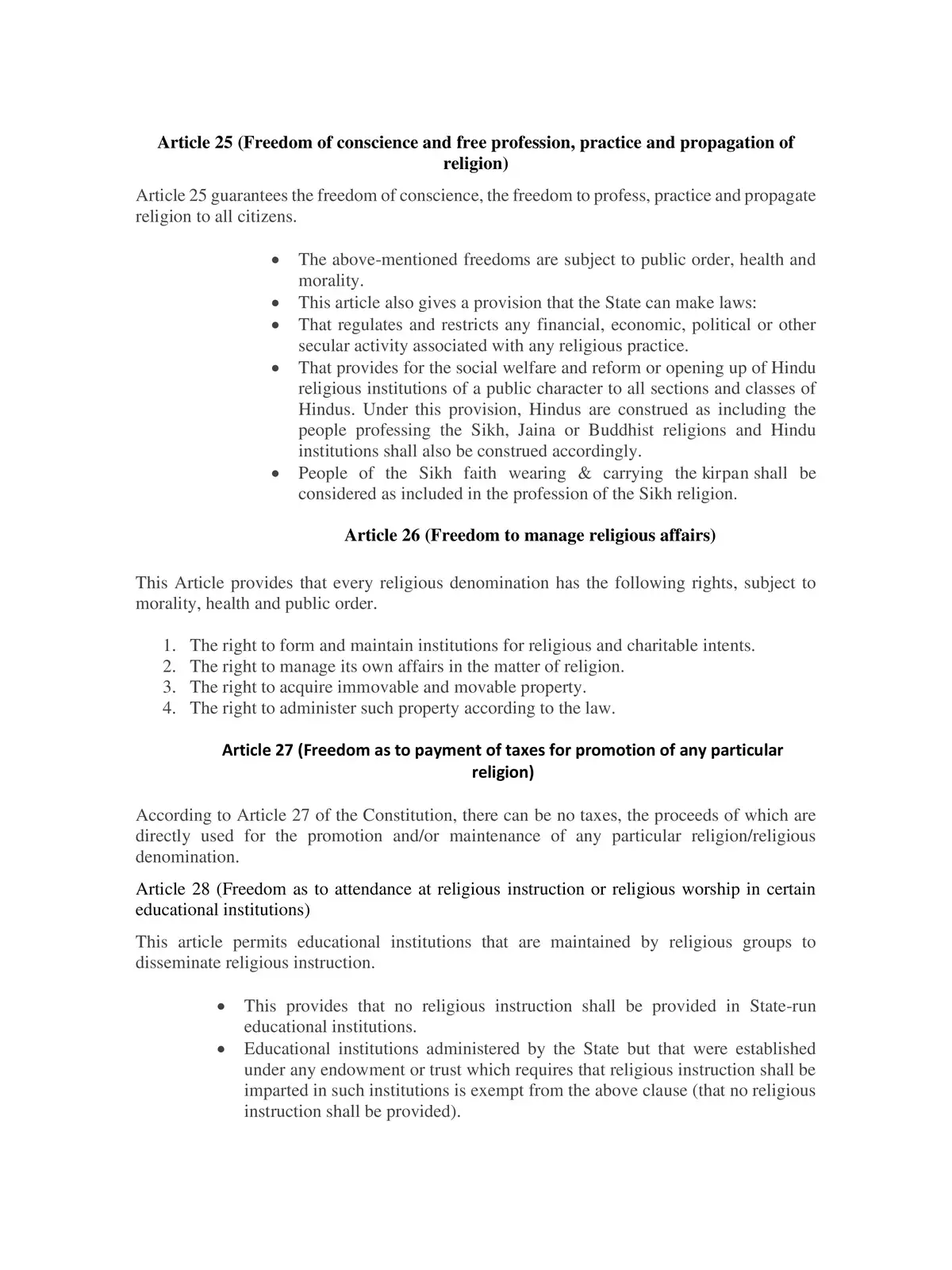Fundamental Rights Article 25 to 27 - Summary
Fundamental rights are essential for the intellectual, moral, and spiritual growth of every citizen in India. These important rights support the existence and overall development of individuals, which is why they are called ‘Fundamental Rights’. They are detailed in Part III (Articles 12 to 35) of the Constitution of India.
Overview of Fundamental Rights
The Indian Constitution recognizes six fundamental rights that help protect individual freedoms:
- Right to Equality (Articles 14-18)
- Right to Freedom (Articles 19-22)
- Right Against Exploitation (Articles 23-24)
- Right to Freedom of Religion (Articles 25-28)
- Cultural and Educational Rights (Articles 29-30)
- Right to Constitutional Remedies (Articles 32-35)
Understanding Article 25
Article 25 ensures that everyone has freedom of conscience, allowing them to freely profess, practice, and propagate their religion. It also states that all persons are equally entitled to this freedom, as long as it is subject to public order, morality, and health.
You can easily download the Fundamental Rights Article 25 to 27 in PDF format using the link below. 📄
